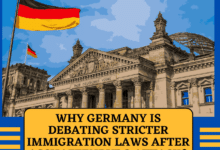Thanksgiving (Erntedank)
Thanksgiving (Erntedank)
When you think of Thanksgiving, turkey feasts, pumpkin pies, and big family gatherings may come to mind. However, that’s the American version. German Thanksgiving, known as Erntedank, has its own unique traditions and customs, though it shares a few similarities with its American counterpart. Whether you’re interested in German culture or curious about celebrating a familiar holiday abroad, here’s what makes German Thanksgiving distinctively German.
Origins of Erntedank
Erntedank, or Erntedankfest, translates to “Harvest Thanksgiving.” Like other harvest festivals across Europe, its roots lie in ancient agricultural rituals aimed at giving thanks for a successful harvest and seeking blessings for future crops. Traditionally, it was a rural celebration held on the autumnal equinox in September. Over time, Erntedank evolved into a Christian observance and remains closely associated with the Church today.
When and How Erntedank is Celebrated?
Typically observed on the first Sunday in October, per recommendations by the German Catholic Church, the exact date of Erntedank festivities varies by region. For instance, in Switzerland, it’s often celebrated in mid-September, while other German-speaking regions may hold it later, even into November. The celebrations are most vibrant in rural areas, featuring church services, parades, and fairs. These events often include decorated floats, traditional attire, and seasonal displays of fruits, vegetables, and grains at the church altar, crowned by a harvest crown made of wheat.
Festive Foods of German Thanksgiving
While there’s no single traditional Erntedank meal, food is central to the celebration. Unlike the American Thanksgiving, where turkey is the centerpiece, German Thanksgiving meals might feature goose or chicken, though turkey has become more popular in recent years. Other common dishes include potatoes, bread, and seasonal vegetables, honoring local produce.

Differences Between German and American Thanksgiving
Although American and German Thanksgiving both emphasize gratitude and harvest, there are notable contrasts. American Thanksgiving is a national holiday and usually features turkey, sweet potatoes, and marshmallow casseroles, a far cry from the German menu. Additionally, the American holiday is secular and often marks the start of the Christmas shopping season with Black Friday, whereas Erntedank remains primarily a religious observance without commercial associations. While Thanksgiving in the U.S. is a family-centric occasion, Erntedank is more of a community event with a strong focus on rural traditions.
Experiencing Erntedank
If you find yourself in Germany in early October, especially in the countryside, take the opportunity to experience Erntedank firsthand. Join the parades, witness the festive church services, and enjoy the local food. Although it may not match the grandeur of American Thanksgiving, Erntedank offers a rich cultural experience, with a strong sense of community and tradition.
Also Check:
5 Prominent Festivals in Germany









